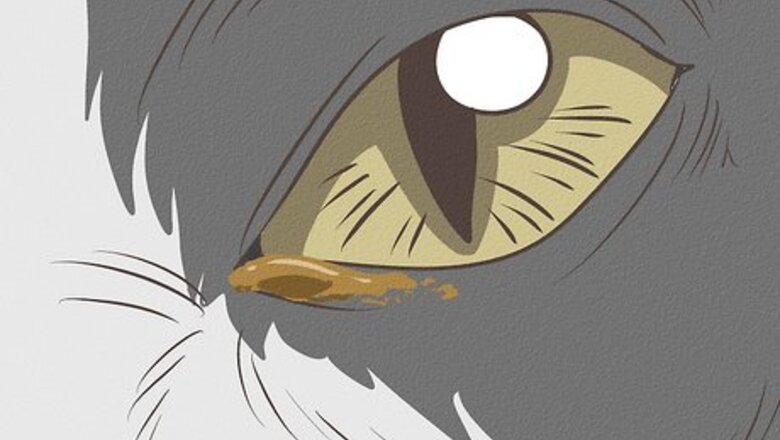
views
Determining the Cause
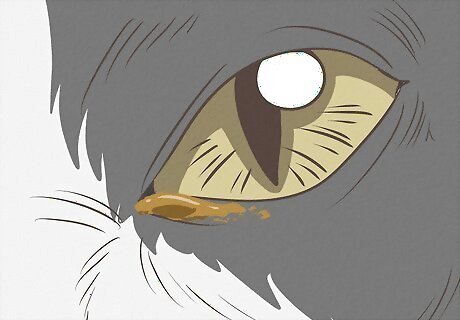
Look for other symptoms. If you've noticed eye inflammation, you should look for additional symptoms your cat may be having. For instance, your cat may have discharge around the eyes. The cat may also squint, rub its eye, or have more tears than normal. Other symptoms may include sensitivity to light, a change to the shape or size of the pupil, or color changes in the eye. It's important to note other symptoms because that will help the vet narrow down the specific cause, making it easier to treat the problem.
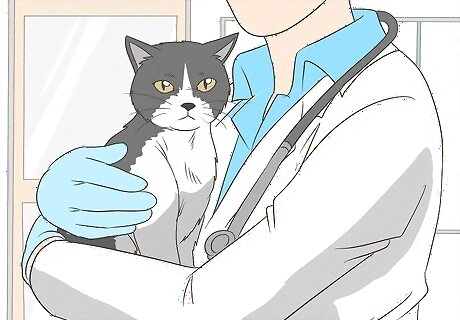
Visit the vet. If you notice your cat has eye inflammation, your first step should be to take the cat to the vet. The vet will be able to narrow down the cause and help you decide on a treatment.
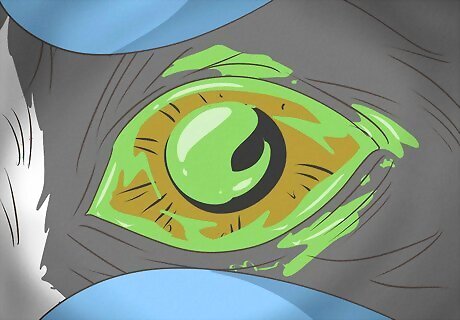
Expect an eye examination. While examining your cat, the vet will need to perform an eye examination. Often, that will include a dye test, where the vet puts a dye in your cat's eye. Then the vet can better see into the eye, making it easier to diagnose the problem.
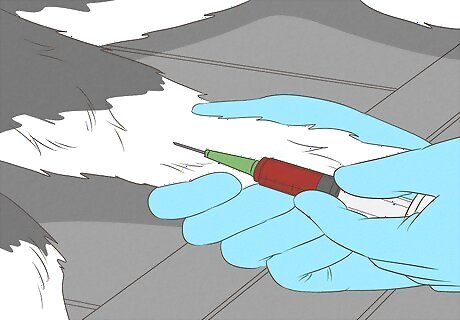
Ask about blood tests and other tests. Blood tests may be needed to help diagnose any underlying conditions. While a cause cannot always be found, a blood test can at least help narrow down the possibilities. Your cat may need other tests as well, such as a urine test.
Treating the Symptoms
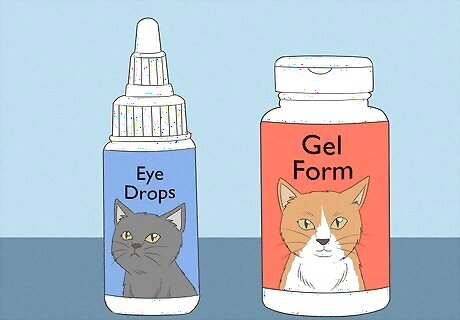
Use anti-inflammatories. The first step for treatment is anti-inflammatories. These can be applied topically or given as a pill. Your vet may also inject some into or near the eye to help treat the condition.
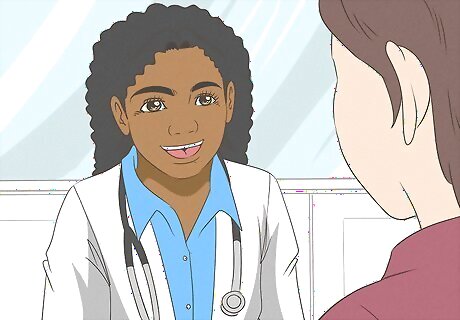
Discuss if the vet needs to remove a foreign object. In some cases, the cause of the inflammation is something your cat got in its eye. The cat will likely need to be sedated before the vet removes the object.
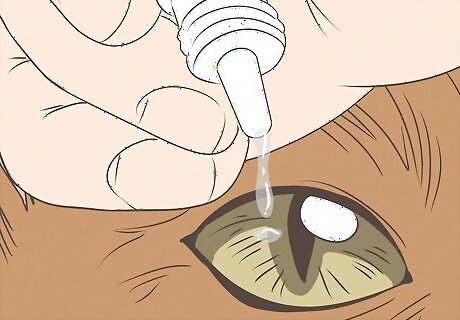
Give your cat antibiotic eye drops. Often, antibiotic eye drops will be needed to help treat the problem, particularly if the vet removed a foreign object or if they eye has been scratched at all. The eye drops will help reduce the chance of infection.
Treat Underlying Causes
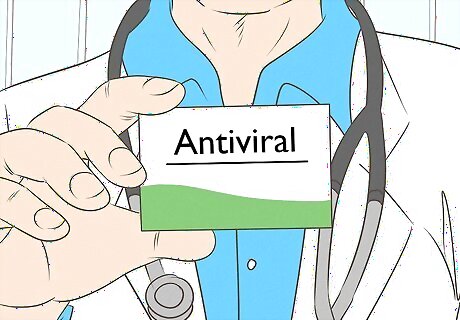
Ask about antiviral treatments. Often, the underlying cause will be a viral infection. If that's the case, the cat will need to be given antivirals to treat that condition. However, not all viral infections can be treated directly through medication. A common viral infection includes herpes. The effects of herpes can be lessened by L-lysine (an amino acid supplement), famciclovir (an antiviral), trifluridine (antiviral eye drops), and/or betadine (antiviral eye drops). Although these medications aren’t licensed for use in cats, your veterinarian may still prescribe them to your cat for use at your own risk. The calici virus is another potential diagnosis. With this virus, treatment will be focused on the symptoms, including pain medications and antibiotics to prevent other infections.
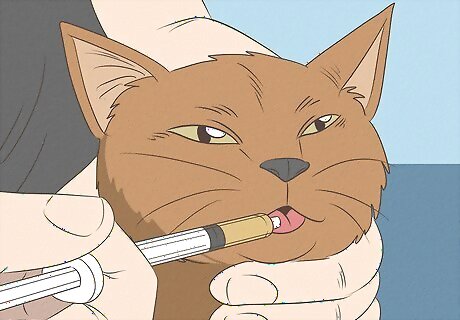
Give your cat antibiotics. Your vet will often recommend antibiotics, particularly if the inflammation is caused by an injury or an underlying bacterial infection (cold). Antibiotics are also given to help ward off other infections. Mycoplasma, bordatella, and chlamydia can all be treated with antibiotics.
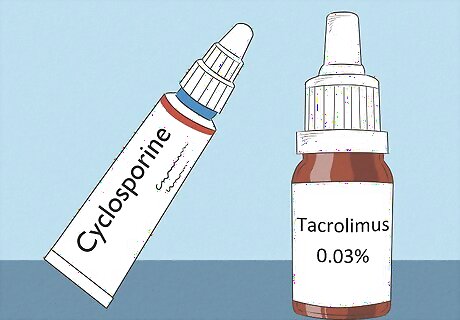
Ask about getting medications for “dry eye.” With this common eye condition, your cat’s eye can’t produce enough tear fluid to keep the surface of the eye moist. This creates inflammation and a thick, tacky discharge. Your vet will likely prescribe medications that are placed directly on the eye to stimulate tear production, replace the tear fluid, or both. Your vet might prescribe cyclosporine or tacrolimus.
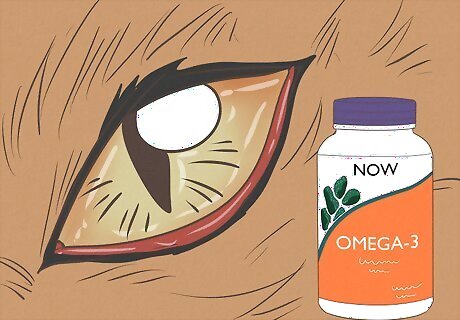
Treat allergies. Allergies can be a cause of eye inflammation, and therefore, treating the allergies can help.Your vet may recommend an antihistamine to diminish the cat's reactions to allergens. Steroids can also be useful on occasion. Ask the vet about an omega-3 fatty acid supplement, which may help your cat's allergies. You can try giving your cat Benadryl, but this is more effective in dogs. You can also take steps to minimize allergens by limiting your cat's exposure to the outdoors, as well as changing up the cat's food to find one your cat doesn't react to.
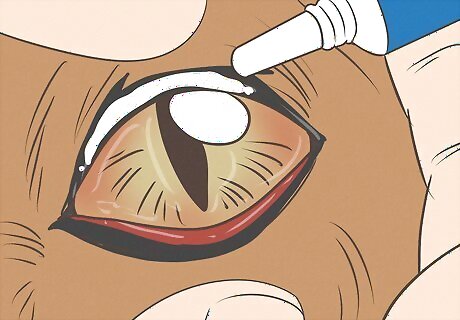
Discuss if anti-fungals are appropriate. At times, anti-fungals may be necessary to treat the underlying problem. For instance, if the cat has a fungal infection on its eyelids, the vet may prescribe an anti-fungal cream to help treat the issue.
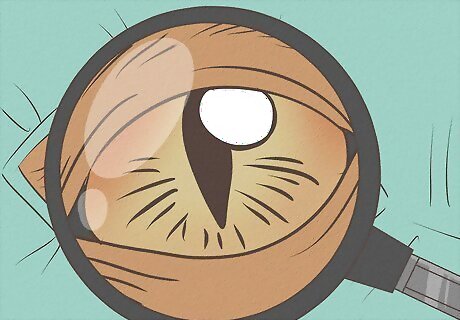
Understand surgery may be necessary. In some cases of inflammation, such as uveitis, your cat may need surgery. Generally, your cat will need surgery if it has a more serious underlying condition, such as cancer, in which case the eye may need to be removed. Another condition where your cat will need surgery is if the lens moves out of place. The vet will need to put it back.















Comments
0 comment